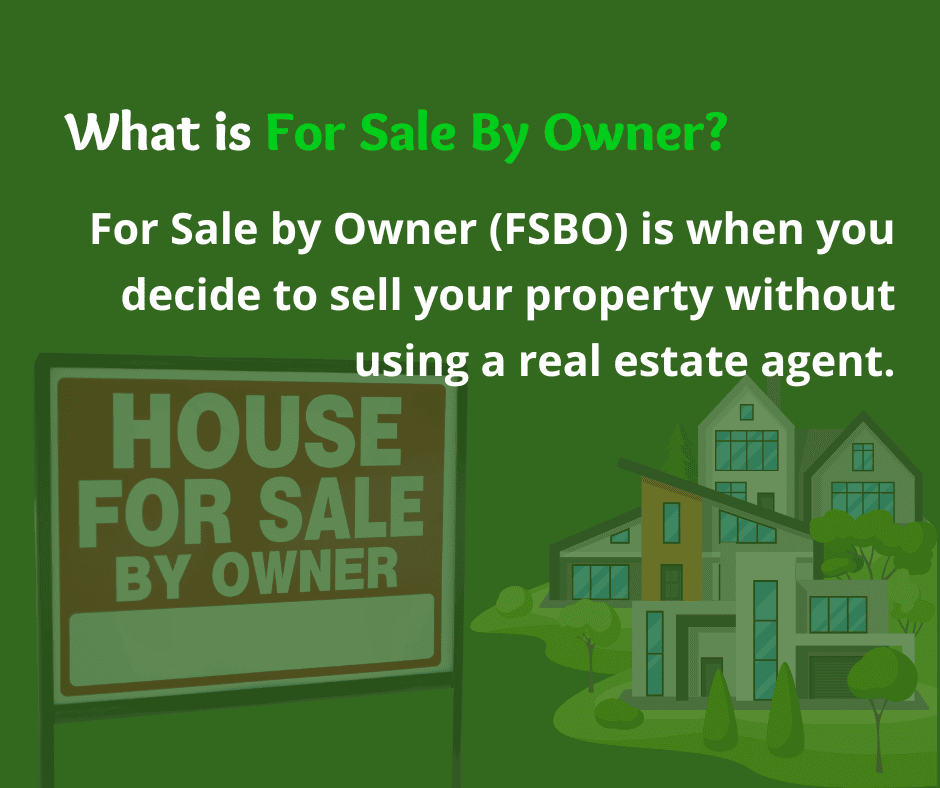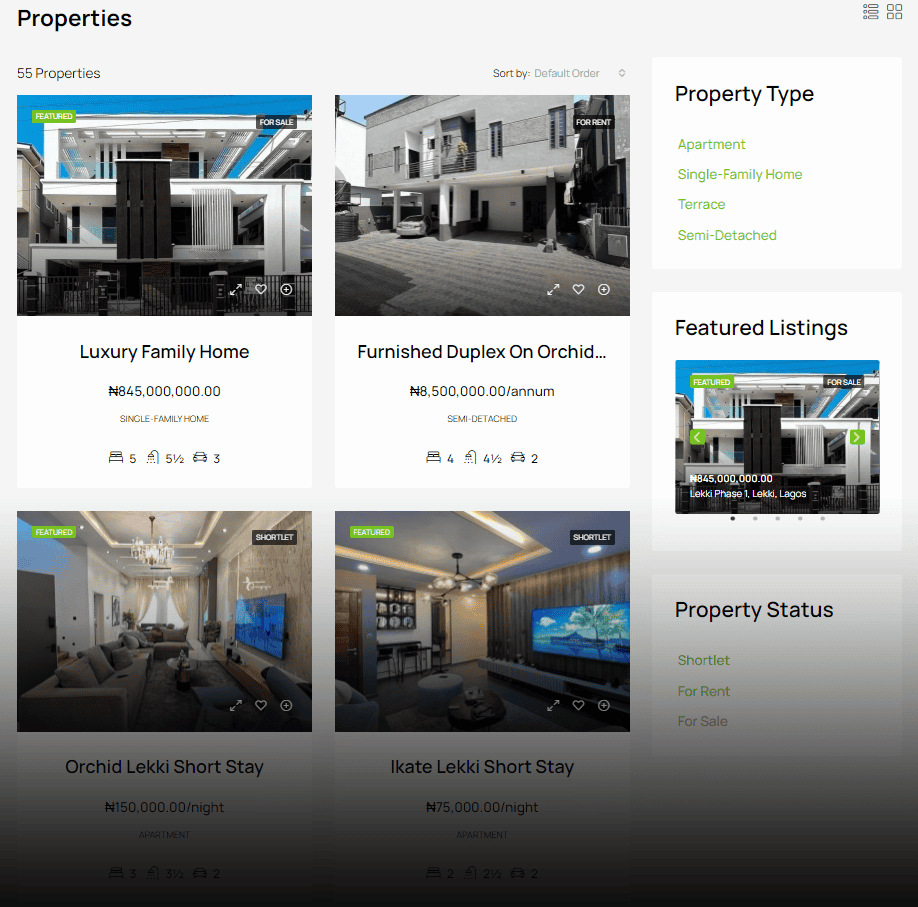- Home
- Property Selling Process
- For Sale by Owner: Definition, Risks & Benefits
For Sale by Owner: Definition, Risks and Benefits

by Bright Ugochukwu
Last Updated: Mar 13, 2025
Selling your home can be a stressful task, especially if you’re considering going it alone.
The For Sale by Owner (FSBO) method is popular with homeowners who want to avoid using real estate agents. It might seem like an easy way to save on commissions, but several factors need to be considered.
In this article, we’ll explore topics, including:
Key Takeaways
- FSBO means selling your home without a real estate agent, which can save on commission fees.
- Homeowners take on all responsibilities, including marketing and negotiations, when selling FSBO.
- While you save on agent commissions, you may still need to pay the buyer’s agent a commission.
- FSBO can lead to emotional stress as sellers may struggle with negotiations and decision-making.
- It’s crucial to do thorough research and understand the legal aspects of selling your home FSBO.
Understanding For Sale by Owner (FSBO)
What is For Sale by Owner?
For Sale by Owner (FSBO) is when you decide to sell your property without using a real estate agent. You’re essentially taking on all the responsibilities that an agent would normally handle.

This can be a tempting option, especially if you’re looking to save money on commission fees. Consider it a DIY approach to selling your house.
You’ll be in charge of everything from setting the price to negotiating with potential buyers. It’s a big undertaking, but it can be done.
How FSBO Works
Okay, so you’re thinking about going FSBO.
What does that actually involve?
First off, you’ll need to do your homework. Research the local market, determine what similar homes in your area are selling for, and set a competitive price.
Then, you’ll need to market your property.
This means creating listings, taking photos, and getting the word out there. You’ll also be responsible for showing your home to potential buyers, answering their questions, and negotiating offers.
And don’t forget the paperwork!
You’ll need to handle all the legal documents and contracts yourself or hire a solicitor to help. It’s a lot to manage, but with careful planning and organisation, it’s definitely manageable.
Common Reasons for Choosing FSBO
Why do people choose to go down the FSBO route?
The biggest reason is usually to save money. Real estate agent commissions can be pretty hefty, often a percentage of the final sale price.
By selling FSBO, you can avoid paying those fees.
People also like the control it gives them. You’re in charge of the entire process, from start to finish. You can make all the decisions, set your schedule, and negotiate directly with buyers.
Plus, some people enjoy the challenge of selling their own houses. It can be a rewarding experience, knowing that you’ve done it all yourself.
Here are some common reasons:
- Saving on estate agent fees
- Having complete control over the sale process
- Setting your own schedule for viewings
- Directly negotiating with potential buyers
Pro Tip: Selling FSBO can be a great way to save money and stay in control, but it’s not for everyone. It requires a lot of time, effort, and property market knowledge. Make sure you’re prepared for the challenge before you dive in.
Advantages of For Sale by Owner (FSBO)
Cost Savings on Commissions
One of the most attractive reasons people consider FSBO is the potential to save money.
You avoid paying estate agent commissions, which can be a significant percentage of the final sale price.
This saving can then be reinvested in a new property.
It’s a big draw, especially when you see how much commission can be on a higher-value home. You could use the savings for home improvements to increase the property’s value.
Control Over the Selling Process
With FSBO, you’re in charge. You decide on the asking price, when to have viewings, and how to negotiate.
This level of control is appealing if you want to manage every aspect of the sale yourself. You get to call all the shots, which some people find empowering. You can set the asking price and negotiate directly with buyers.
Flexibility in Negotiations
Going FSBO gives you the freedom to negotiate directly with potential buyers.
You aren’t bound by an agent’s advice or strategies, allowing you to tailor the deal to suit your specific needs.
This can be particularly useful if you have unique circumstances or are willing to be flexible on certain terms. You can be more creative in the kind of agreement you make with a seller.
Pro Tip: Selling FSBO means you’re responsible for everything, including marketing, paperwork, and legal compliance. It’s a lot of work, but the rewards can be worth it if you’re organised and prepared to put in the effort.
Challenges of For Sale by Owner (FSBO)
Selling your house yourself can save you money on commissions.
But it isn’t always easy.
There are some hurdles to consider before deciding to go it alone. It’s not just about sticking a sign in your garden and waiting for the offers to roll in. You need to be realistic about the work involved and the potential pitfalls.
Limited Market Exposure
One of the biggest challenges is getting your property seen by enough people.
Real estate agents can access things like the Multiple Listing Service (MLS) and other networks that get your house in front of a large audience.
Without that, you’ll rely on your own efforts, which can be time-consuming and may not reach as many potential buyers.
You might find that some buyer’s agents are less keen to work with FSBO sellers, as they usually get their commission split with the listing agent. This means you might have to work harder to market your property to compensate for a smaller pool of buyers.
Responsibility for All Aspects
When you sell FSBO, you’re in charge of everything.
And I mean everything.
It all falls on you, from taking photos and writing the listing description to arranging viewings and negotiating offers.
This can be overwhelming, especially if you’re already juggling a full-time job and other commitments. It’s a lot more work than most people realise.
Here’s a quick rundown of what you’ll be responsible for:
- Preparing the property for sale
- Marketing the property
- Handling enquiries and viewings
- Negotiating offers
- Dealing with legal paperwork
Pro Tip: It’s easy to underestimate the time and effort involved in selling a house. Ensure you’re prepared to dedicate the necessary resources to the process, or it could take much longer than expected.
Emotional Involvement in Sales
Selling a home can be an emotional rollercoaster, even when you have an agent to buffer the stress.
When you’re selling FSBO, that emotional involvement can be amplified. It’s your home, and it’s easy to take things personally, especially during negotiations.
This can cloud your judgement and make it harder to make rational decisions. Remember, it’s a business transaction, even if it feels personal.
Legal Considerations in FSBO Transactions
Understanding Legal Obligations
When you sell your home yourself, you assume all the legal tasks that a real estate agent usually manages.
This includes understanding property disclosure laws, which require you to inform potential buyers of any known defects or issues with the property.
Failure to disclose can lead to legal problems down the line.
It’s also important to be aware of local regulations regarding property sales, such as zoning laws and building codes. In the eyes of the law, ignorance isn’t an excuse, so do your homework!
Importance of Contracts
The contract is the king of any property transaction. It outlines the terms of the sale, including the price, closing date, and any contingencies.
As a FSBO seller, you are responsible for ensuring that the contract is legally sound and protects your interests.
This means it should clearly state all obligations of both the buyer and seller and comply with all applicable laws.
Don’t just grab a template off the internet; get it checked by someone who knows what they’re doing. You might want to look at case interpretations to understand your ethical obligations.
When to Consult a Lawyer
It may be tempting to skip legal fees to save money. However, there are times when hiring a lawyer for a FSBO transaction is worth it.
Here are some situations where legal advice is crucial:
- You’re not familiar with property law.
- The property has complex issues (e.g., boundary disputes, easements).
- The buyer is using a real estate agent.
- You’re dealing with a difficult or uncooperative buyer.
Pro Tip: Getting legal advice early on can help you avoid costly mistakes and ensure that the sale goes smoothly. It’s better to spend a little money upfront than to face a lawsuit later on.
While FSBO can save you money on commission, it also places a lot of responsibility on your shoulders. Make sure you’re prepared to handle the legal aspects of the sale, or be willing to seek professional help when needed.
Marketing Strategies for FSBO Properties
Effective Online Listings
Okay, so you’re going solo with your house sale.
First, you need to get your property seen. Forget fancy brochures for now; it’s all about the internet.
Your online listing is your shop window, so make it count.
- Use professional-looking photos. Seriously, no blurry phone snaps. Natural light is your friend.
- Write a killer description. Highlight the best features of your home.
- Be honest. Don’t try to hide that dodgy wallpaper in the spare room; people will find out anyway.
Pro Tip: Think of your listing as your first impression. You want people to be excited enough to book a viewing.
Utilising Social Media
Social media isn’t only for sharing holiday snaps; it’s a powerful marketing tool. Promote your property on as many platforms as possible. You can start by posting free ads on Facebook Marketplace.
- Share your listing on Facebook, X, and Instagram.
- Join local community groups and post about your house.
- Ask your friends and family to share your posts.
Hosting Open Houses
Open houses can be a bit of a pain, but they’re a great way to attract a large number of potential buyers at once.
- Choose a weekend day and time that works for most people.
- Advertise your open house online and in local newspapers.
- Make sure your house is clean and tidy. First impressions matter.
- Be prepared to answer questions about your property. Have all the details at your fingertips.
Comparing FSBO with Traditional Sales
Cost Implications
Okay, so let’s get real about money. One of the biggest reasons people even think about FSBO is to save on those hefty estate agent fees.
I mean, who wouldn’t want to keep that extra cash?
With a traditional sale, you’re looking at commissions, usually split between the buyer’s and seller’s agents. But with FSBO, you aim to cut out at least half of that.
However, it’s not always as simple as it seems. You might end up paying the buyer’s agent commission anyway, and there are other costs to consider, like marketing and legal fees.
It’s a bit of a gamble, really.
You could save a bundle, or you might end up spending more than you thought. It’s worth doing your homework and figuring out all the potential expenses before you jump in. For example, you might need to pay for legal advice to ensure you’re not making any mistakes.
Time Investment
Time, time, time… it’s always about time, isn’t it?
Selling your house the traditional way means an agent handles a lot of the work. They schedule viewings, handle enquiries, and generally keep things moving.
With FSBO, that’s all on you. And trust me, it can be a full-time job.
You’re the one taking calls, arranging viewings, and trying to juggle it all with your normal life. It can be seriously stressful.
If you’re already stretched thin, FSBO might not be the best option.
You need to be realistic about how much time you can dedicate to the process. If you’re not prepared to work the hours, you might be better off working with an agent.
Support from Real Estate Agents
Let’s be honest, estate agents can be a pain, but they do offer a lot. They know the market, have experience negotiating, and can handle all the paperwork.
Plus, they’ve got a network of contacts that can be really useful.
With FSBO, you’re on your own.
You’re doing the research, negotiating with buyers, and ensuring everything is legally sound. It can be daunting, especially if you’ve never done it before.
Agents also provide a buffer, filtering out time-wasters and handling awkward conversations. Going it alone means you need to be prepared to deal with everything yourself. It’s a big responsibility, but some people thrive on that kind of challenge.
Pro Tip: The biggest thing to remember is that there is no right or wrong answer. It all depends on your individual circumstances and what you’re comfortable with. If you’re confident, organised, and have plenty of time, FSBO could be a great option. But if you’re feeling overwhelmed or unsure, it might be worth sticking with a traditional sale.
Here’s a quick comparison table:
| Feature | FSBO | Traditional Sale |
|---|---|---|
| Control | You have full control over the process. | You're relying on the agent's expertise and network. |
| Cost | Potentially lower, but depends on the situation. | Higher due to commission fees. |
| Time | More time-consuming. | Less time-consuming for you. |
| Expertise | You need to be the expert. | You benefit from the agent's expertise. |
Tips for a Successful FSBO Sale
Setting the Right Price
Okay, so you’re going solo on this house sale.
First things first: pricing. Getting the price right is absolutely vital.
Do your homework.
Look at what similar properties in your area have actually sold for recently – not what people are asking. Online valuation tools can be a starting point, but they’re not always spot-on.
Consider getting a professional appraisal. It might cost a bit upfront, but it could save you a lot of heartache (and money) later.
Don’t let your emotional attachment to the place cloud your judgement. Be realistic, and prepared to adjust if you’re not getting any bites. Overpricing is a common pitfall in FSBO sales.
Preparing Your Home for Sale
Right, it’s time to get your house looking its best. Think of it as staging but on a budget.
Declutter like your life depends on it.
Get rid of anything that’s not essential, and pack away personal items. You want potential buyers to be able to imagine themselves living there and not feel like they’re intruding on your space.
A fresh coat of paint can do wonders, especially in neutral colours.
Fix any obvious problems – leaky taps, cracked tiles, that sort of thing. Kerb appeal matters too, so tidy up the garden and ensure the front door looks inviting. First impressions count, big time.
Here’s a quick checklist:
- Declutter every room
- Clean thoroughly (or hire a cleaner)
- Make necessary repairs
- Improve kerb appeal
Negotiating Offers Effectively
So, you’ve got an offer (or hopefully several!). Now comes the tricky part: negotiating.
Don’t get emotional.
Treat it like a business transaction. Know your bottom line – the absolute minimum you’re willing to accept – and don’t be afraid to walk away if the offer is too low.
Consider all aspects of the offer, not just the price.
What are the buyer’s conditions? What’s their timeline? Are they flexible on anything?
Be prepared to compromise, but don’t give away the farm. It’s a negotiation, after all, not a surrender.
Good communication is key. Reply quickly to questions or concerns, and keep the lines of communication open.
Pro Tip: Selling your home is a big deal. Take your time, research, and don’t be afraid to ask for help if you need it.
Final Thoughts on FSBO
In conclusion, selling your home as a For Sale By Owner can be a mixed bag.
Sure, you might save some cash by skipping the agent fees, but it’s not all sunshine and rainbows. You’ll need to put in a lot of time and effort, and there’s a good chance you’ll face challenges you didn’t see coming.
From marketing your property to handling negotiations, it’s all on you.
It could work well if you’re up for the task and feel confident in your abilities. But if you’re feeling a bit overwhelmed, it might be worth getting help from a professional. Weigh your options carefully and choose what feels right for you.
FAQs
What does FSBO mean?
FSBO stands for ‘For Sale by Owner’. It means a property is sold directly by the owner without a real estate agent.
Why would someone choose to sell their home FSBO?
People often choose FSBO to save money on agent commissions, which can be quite high.
What are the main benefits of selling FSBO?
The main benefits include saving on commission fees, controlling the selling process, and being flexible with negotiations.
What challenges might I face when selling FSBO?
Challenges include limited market exposure, handling all the selling tasks yourself, and dealing with emotional stress.
Do I need a lawyer when selling FSBO?
It’s a good idea to consult a lawyer to understand your legal obligations and ensure all contracts are correct.
How can I market my FSBO property effectively?
You can market your property through online listings, social media, and by hosting open houses to attract buyers.
